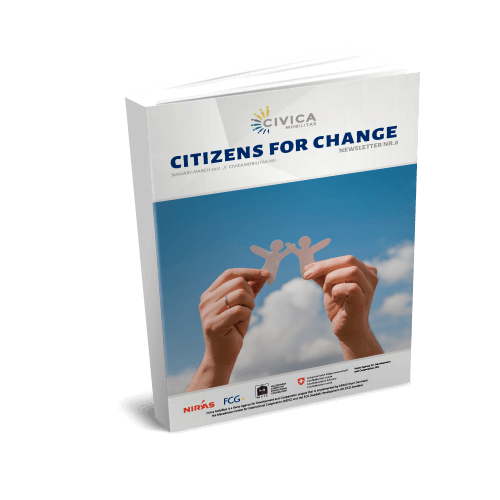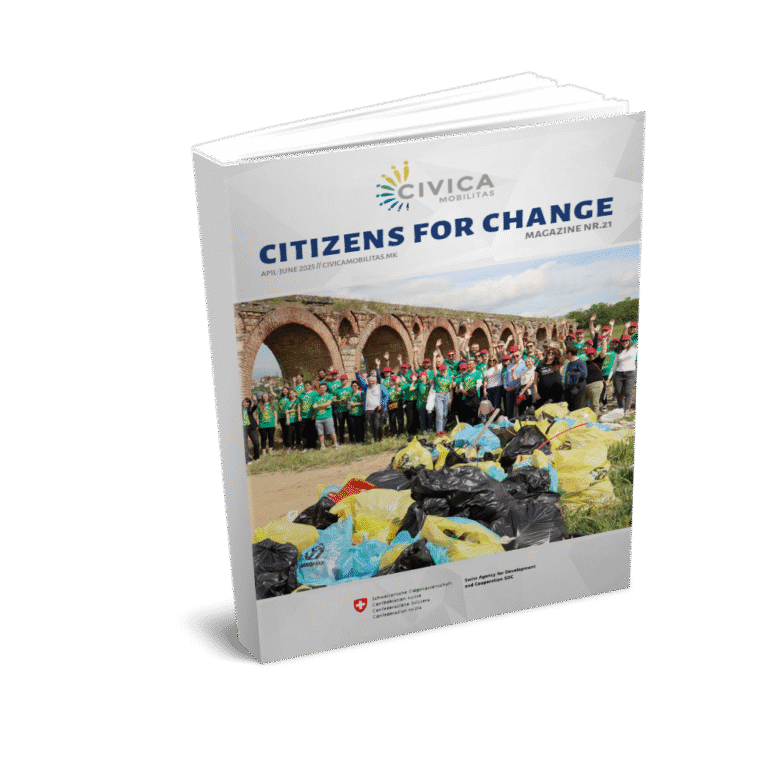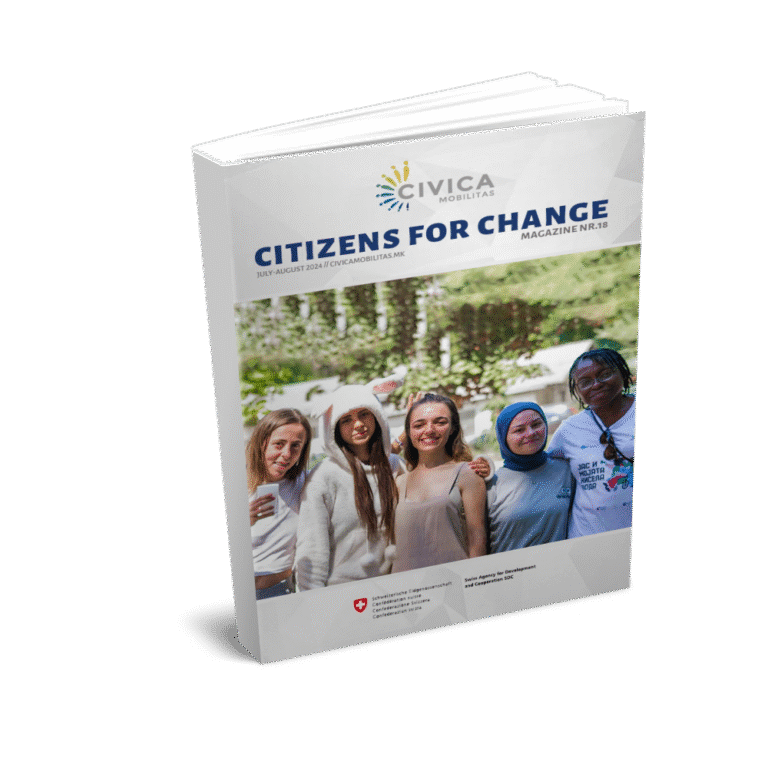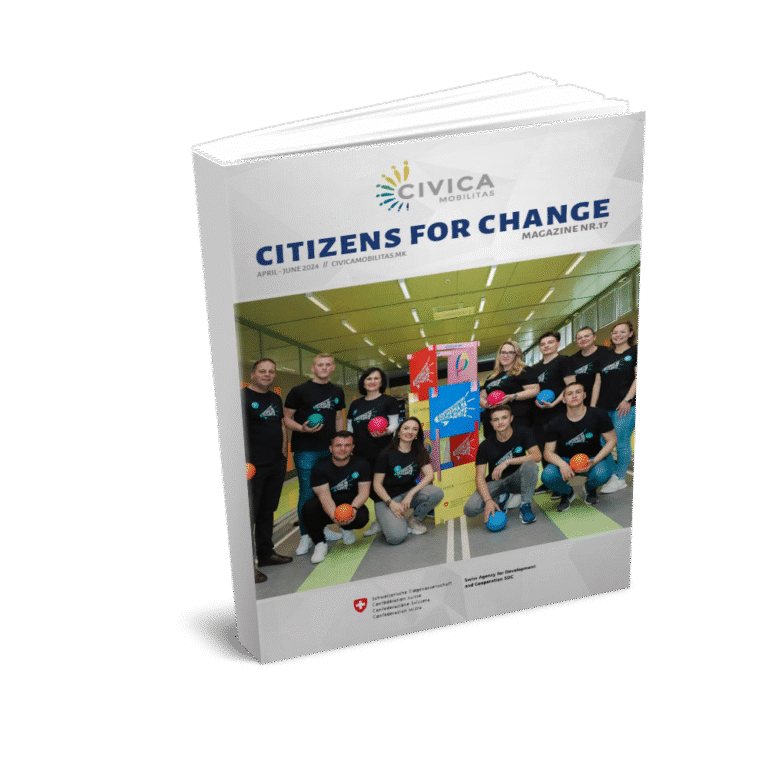Citizens for Change #8
JANUARY-MARCH 2021
This issue of Citizens for Changes has interesting contents inspired by the work of the CSOs. We have covered a broad specter of themes and activities which were implemented in all areas of the country. We believe that you will find your personal or professional interest in part of them.
Several important things in the area of enabling environment happened to the civil society in the country in this period. In the beginning of April, the mandate of the first composition of the Council for Cooperation and Development of the Civil Sector ended. When you read these lines, the voting for the new composition would have started; according to the deadlines, it is expected that it will be known by the end of May this year. Join and vote for a candidate in the area in which your organization works. Choose the candidate that you think will represent your interests in this body.
The work of the Council was a subject of analysis, whose results we hope will be published. This is important to objectivize the assessments of the work of the Council, and the lessons learnt should be taken into consideration by the new members. It is also important that the Council is seen as a whole, the representatives of the CSOs and government bodies together, because the Council is for cooperation. The composition that is leaving, has reviewed the recommendations of the assessment and proposed that the Government makes changes in the Decision for establishment of the Council. If the Government accepts the guidelines, the Council will change its name into Council for Cooperation between the Government and the Civil Society. Instead of initiating the adoption of new or changing and amending the existing regulations for improving the legal and institutional framework for working of the organizations, the Council will limit itself to implementing activities for awareness raising to promote the culture of cooperation and partnerships. Regulating the presence is made milder and instead of unjustified absence of six months or two sessions, it is proposed that it is three consecutive sessions, etc.
Apart from this, teh novelty is recording the real owners in the register of CSOs. The obligation is a result of the Law for Prevention of Money Laundering and Terrorism Financing. The obligation for registration should be fulfilled no later than 27 April this year. It is expected that the CSOs will become active stakeholders in these issues important for protection of the civil society and building an enabling environment that will protect them from abuse, but it will not restrictive to their work.
At the end of April, the final version of the Guidelines for EU Support to Civil Society in the Enlargement Region for the period 2021-2027 is expected to be published. We have made a short review of the consultation process led by TACSO 3 project.
Have a pleasant reading!








